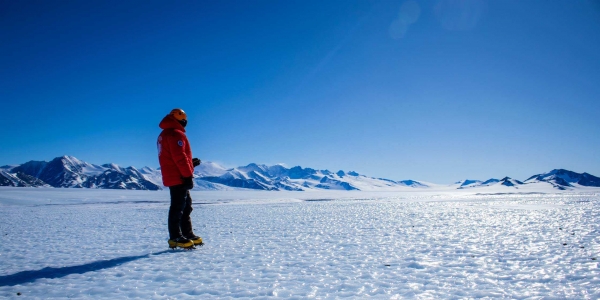Antarctica harbours a large concentration of meteorites imbuing the icy continent with an unparalleled wealth of information on our Solar System.
Antarctica harbours a large concentration of meteorites imbuing the icy continent with an unparalleled wealth of information on our Solar System. However, these precious meteorites are rapidly disappearing from the ice sheet surface due to global warming, according to a new study in Nature Climate Change.
Using artificial intelligence, satellite observations, and climate model projections, a team of researchers from Switzerland and Belgium calculate that for every tenth of a degree of increase in global air temperature, an average of nearly 9,000 meteorites disappear from the surface of the ice sheet. This loss has major implications, as meteorites are unique samples of extraterrestrial bodies that provide insights into the origin of life on Earth and the formation of the Moon.
Disappearing at an Alarming Rate
By 2050, about a quarter of the estimated of 300,000 - 800,000 meteorites in Antarctica will be lost due to glacial melt. By end of the century, researchers anticipate that number could rise approaching a loss of meteorites closer to three-quarters of the meteorites on the continent under a high-warming scenario.
Read more at ETH Zurich
Image: Solar radiation heating the surface of a blue ice area. Photo taken during the 2023-2024 fieldwork mission of the Instituto Antártico Chileno (INACH) to Union Glacier, Ellsworth Mountains, Antarctica. (Credit: Veronica Tollenaar, Université Libre de Bruxelles.)




